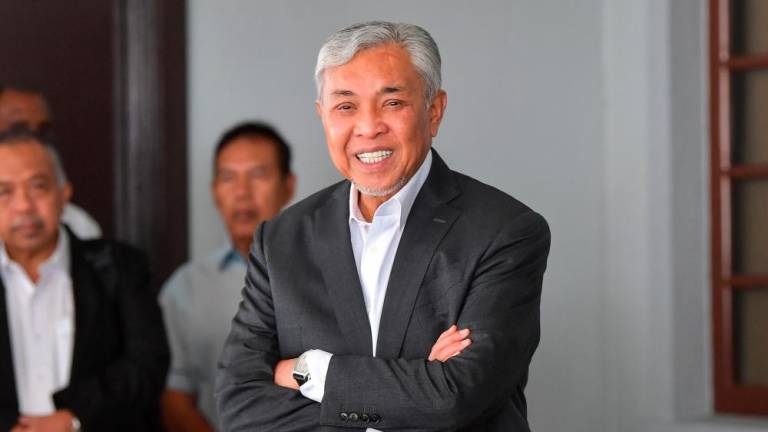HOW does a poor family of five cope with being confined in a flat smaller in size than a badminton court for six long weeks?
How does a young outstation student deal with staying between the walls of a hostel room as spacious as a camper van for such a duration?
How do 20 migrant labourers pining for their families in faraway homes live cooped up together while restricted to a living quarters no bigger than a garage?
The Covid-19 pandemic will not only be known for forcing countrywide restrictions and frantic medical responses as never before seen across the world.
It will likely also be notorious for ushering the most widespread affliction of emotional distress and mental depression, on a scale unmatched in history.
In addition to traumas endured due to deaths of loved ones and fears of infection among the living, billions of people are confronting the frustration of loneliness and isolation.
Many are picking up claustrophobia. Some are suffering social conflicts from overcrowding and sharing of space over an excessively lengthy period.
Added to this is the overarching stress over loss of income and job security as an economic crisis sharpens its grip on societies, and the damage set to linger long after the contagion subsides.
While governments largely unprepared for the medical crisis scramble to treat victims and contain the virus which had its epicentre in Wuhan, China, there is a crying need for suitable mental health responses to support the public.
But this has been wanting. Reports are coming in of boredom, anguish and even hopelessness percolating among people, leading to aggression and abuse.
According to Kuala Lumpur-based psychotherapist Nahlana Kreshan, the movement control order is bringing out the worst in some people as can be seen by the reports of domestic violence and attacks on animals.
She explained that people use coping mechanisms such as flight, fight or freeze during moments of extreme stress.
“If you are a flight person, your tendency will be to walk or run away,” said Nahlana, a somatic experiencing therapist at Somatic Asia. “In a house one can always do that by going into another room, the balcony, garden or porch.”
“Freeze is when one goes silent and withdraws. This is dangerous and can lead to depression and even addiction.
“Equally troubling is the fight mode, when they act out by hitting something or someone or break something,” she added, stressing that simple tools called “Orienting” and “Resourcing” can be learnt to help the body to release stored stress.
In an effort to provide such help, Public Health England, a UK government agency, has come up with online guidance highlighting some principles to help people manage their mental health at this time.
Essentially, it specifies activities like keeping contact with friends and family via telephone and video calls, or social media; ensuring a regular routine and sleeping pattern; and focusing on a hobby or learning something new.
There are many constructive things a person can do if given such guidance and if he sets his mind to doing them.
People, especially the young ones, should appreciate the immense technology at their disposal today. It is fair to say that they would have been in a far worse condition if such a crisis had hit them just 10 years back.
Common folks are using digital tools for chatting, video-conferencing and entertainment, while keeping themselves informed and connected.
Interestingly, tens of millions of people in India have participated in initiatives suggested by the authorities, such as lighting lamps and boisterously applauding the frontliners in unison, to keep up community spirits.
Neighbourhoods in Italy, which has been ravaged by the novel coronavirus, are witnessing people singing together from their balconies to lift their morale.
Realistically, however, not everyone is a yoga or Zen master, so to speak, and can keep their senses during this unprecedented emergency. This is especially true of those with extroverted streaks.
Proper mental health programmes must be put in place to deal with the oft-neglected psychological part of a major crisis, should one arise next in the future.
Himanshu is a veteran journalist and theatre practitioner. Comments: letters@thesundaily.com














